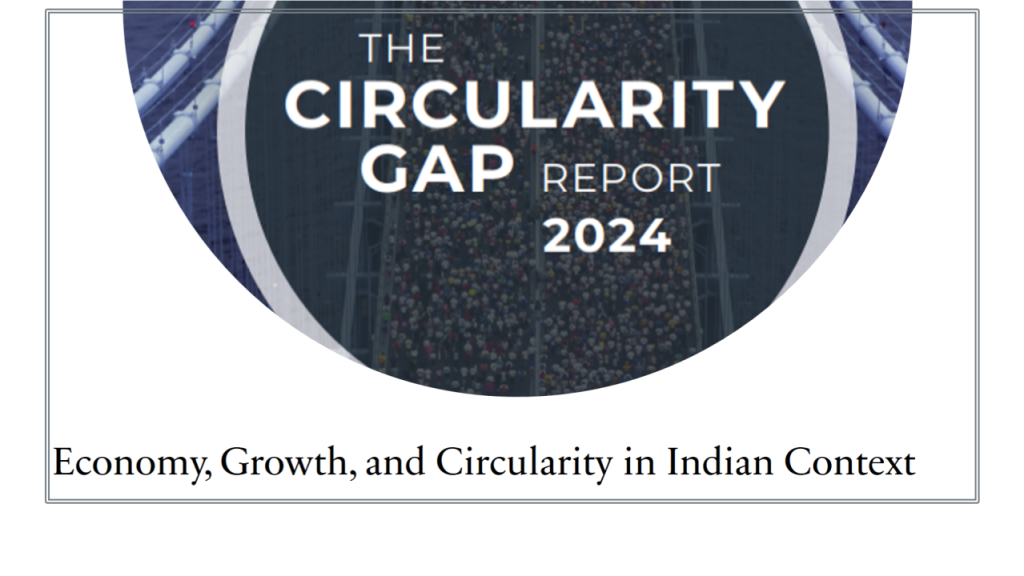In the pursuit of a sustainable future, the battleground of waste management has taken center stage, and the onset of digitalization is proving to be a catalyst for change shaping the contours of this battleground. While collecting the research insights for SHERPA Institute’s SDG 12 UN Corporate Guidebook Series, I realized that digital solutions can be pioneering in the data collection leading to informed decision-making for the streamlined waste management at every level, from consumers to governments. This edition delves into the various aspects of digital waste management. Uncovering the layers of this digital revolution, explore future trends, recognize challenges, and identify the rich opportunities that lie ahead.
Governance in the digital age:
Effective waste management depends on robust governance. In the digital age, integrating advanced technology provides a streamlined approach to governance processes. Real-time monitoring, data-driven decision-making, and increased transparency are achievable goals. The importance of ISO 26000, the international standard for social responsibility, is further emphasized when combined with digital solutions, amplifying the impact of waste management efforts at the company level.
Regulatory status and digital compliance:
Governments around the world have recognized the need for sustainable waste management, leading to the development of regulatory frameworks that include digital compliance standards. Technology isn’t just about ensuring compliance. This enables efficient reporting, reduces the burden on regulators, and improves overall accountability.
A global perspective on digital waste management:
The global perspective on digital waste management is one of transformative innovation and efficiency. Leading corporations worldwide, such as Waste Management Inc., Veolia, and SUEZ, are leveraging cutting-edge digital technologies like IoT, AI, and data analytics to revolutionize waste collection, recycling, and disposal processes. These industry leaders serve as beacons, demonstrating the immense potential of digitization in achieving circular economy goals. The integration of these technologies optimizes operational processes, enhances sustainability, and sets a precedent for global waste management practices. This global perspective emphasizes the crucial role of digitalization in shaping a more efficient and environmentally conscious future. In business terms, according to one of the statistics, the global smart waste management market had an estimated value of two billion U.S. dollars in 2022. This market was expected to grow at a compound annual growth rate (CAGR) of 14.98 per cent through the end of the decade, to reach 6.2 billion dollars by 2030. Smart waste management uses technologies that typically incorporate Internet of Things (IoT) monitoring tools to make waste management more efficient and sustainable. Mordor Intelligence says it will reach USD 7.52 Billion in 2029 with a 15.81% CAGR!

Prospects for digital waste management in India:
In India, the momentum behind the digitization of waste management is gaining traction. Initiatives like the Swachh Bharat Mission underscore the government’s commitment to cleanliness and sustainability. These digital platforms actively track waste, engage citizens, and monitor waste treatment facilities. Challenges persist, and a comprehensive shift to digitization requires collaborative efforts from government bodies, private enterprises, and local communities. Digital platforms proactively track waste, engage with citizens, and monitor waste treatment facilities. I read an exciting article that talks about different startups working in the area of waste management and sustainability in India. It provides details about each startup like their mission, founders, location, year of establishment, investors (if any) etc. The startups mentioned in the article are working on solutions related to recycling, converting waste into fuel, managing waste for industries and residential areas, reusing and upcycling waste etc. In addition to these several waste management companies in India are using technology to optimize waste collection processes and develop sustainable waste management models. These companies include NEPRA – Let’s Recycle, Recykal.com, DVertex-Safaimitra, Saahas Zero Waste, Attero Recycling Pvt Ltd, Clean Harbors India , Eco-Wise Waste Management Pvt. Ltd. amongst the others.
Future trends in digital waste management:
Looking to the future, exciting opportunities are opening in the field of digital waste management. The integration of predictive analytics, blockchain for traceability, and drones for waste monitoring are emerging as key trends, pointing to a future characterized by innovation, efficiency, and sustainability.
Implementation challenges: Implementing digital waste management solutions is not without its challenges. Initial infrastructure costs, privacy concerns, and the need for comprehensive digital literacy are hurdles on the path to full-scale digitalization, and addressing these challenges requires collaborative approaches, It requires knowledge sharing and an unwavering commitment to long-term sustainability goals.
Collaboration and opportunities for stakeholders: Success in digital waste management is closely linked to collaboration between government agencies, private companies, NGOs, and local communities. There are many opportunities for technology providers, waste management companies, and policymakers to work together to drive innovation and create a lasting positive impact on the environment.
Connecting the SDGs and digitalization of waste management:
Advancing sustainability goals In the rapidly evolving waste management landscape, the integration of digital technologies not only optimizes operational efficiency but also seamlessly aligns with the United Nations Sustainable Development Goals (SDGs). This digital transformation will act as a powerful catalyst, propelling the global community towards a more sustainable and circular future.
SDG 11: Sustainable cities and communities: Digitalization of waste management contributes to cleaner and more resilient cities through smart waste collection systems and citizen engagement apps.
SDG 12: Responsible consumption and production: Digital technologies enable precise tracking, efficient recycling, and responsible disposal practices in line with sustainable consumption and production patterns.
SDG 13: Climate protection: Digitalization of waste management serves as a tool in the fight against climate change and considers SDG 13 by minimizing the environmental impact of waste.
SDG 9: Industry, innovation and Infrastructure: By integrating digital solutions into waste management, we foster innovation and materialize SDG 9 by building resilient infrastructure.
SDG 17: Partnerships to achieve the goal: Digitalization of waste management fosters collaboration between governments, private companies, NGOs and local communities and is in line with the global partnership focus of SDG 17.
Synergy opportunities: The interface between digitalization of waste management and the SDGs offers numerous opportunities for synergies, including promoting a circular economy, integrating renewable energy, education and awareness, and creating inclusive jobs.
In my opinion, the digital revolution in waste management is a game-changer, ushering in an era where efficiency meets environmental responsibility. By seamlessly aligning with global sustainability goals, this revolution transforms waste from a burden into a valuable resource. Real-time monitoring, data-driven decisions, and global collaborations redefine governance, ensuring accountability and transparency. From major international players to innovative Indian startups, technology-driven solutions contribute to a cleaner, more resilient planet. Despite implementation challenges, the synergies between digitalization and the UN Sustainable Development Goals offer a blueprint for a circular economy, renewable energy integration, educational outreach, and inclusive job creation. This paradigm shift envisions a future where waste not only finds purpose but actively contributes to a thriving environment. This changing landscape will be exciting to monitor as it unfolds!




Leave a comment